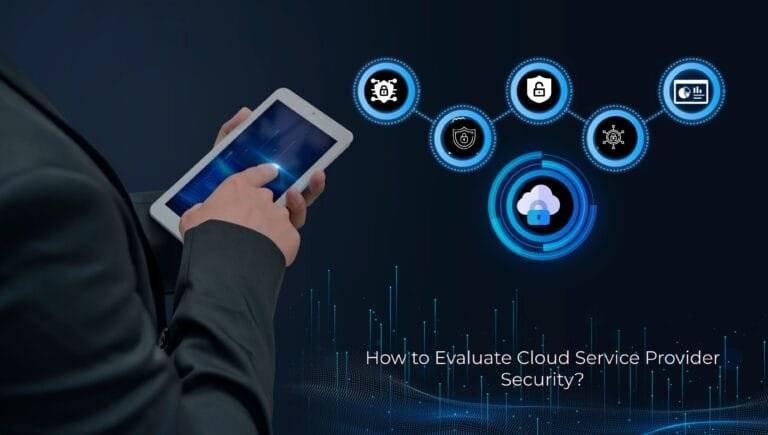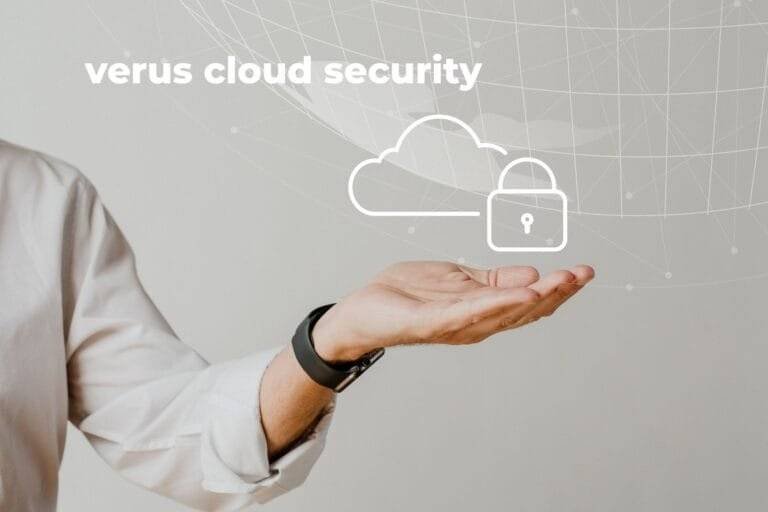Why Your Virtual Private Cloud Could Be at Risk – And How to Fix It!
In today’s online world, think of your Virtual Private Cloud (VPC) as a big, strong online asset that keeps your internet data secure. It’s a special piece of the internet just for you, with its own rules and ways to protect itself. But just like in old castles, there can be weak spots even in the strongest walls. With hackers getting smarter and sneakier every day, it’s very important to know that your digital castle might not be as secure as you think.
The great news is that with some smart moves and the right tools, you can fix these weak spots and maybe even get rid of them for good. The trick is to spot where your VPC might be a little weak and then do what’s needed to make it stronger. There might be lots of things to look out for, like security settings you forgot to check or not enough rules on who can get in and out, but there are also lots of ways to make things better. By getting ahead of the game and boosting your VPC’s security, you can build a digital fortress that’s tough and ready to stand up to all the tricky moves hackers might try to pull.
What is a public cloud? And What is a private cloud?
Jumping into cloud computing might seem like walking through thick mist at first, but it’s not that complicated once you break it down. Let’s start simple with two main types: the public cloud and the private cloud.
Think of the public cloud as a huge, busy city. It’s a place where stuff like servers, storage, and services are owned by some company but everyone can use them, kind of like renting an apartment. You get to use all the cool stuff without worrying about fixing things or spending a ton of money to own them. The best part about the public cloud is how it lets you use more or less of these services depending on what you need, and you only pay for what you use.
On the other hand, think of the private cloud as a quiet, private neighborhood behind a gate. It’s set aside just for one organization, giving it the best security and control. The private cloud can be kept right at the organization’s place or with another company, but either way, it’s only used by that one group. It’s like having your own house, with all the privacy and ways to make it your own, but you also have to take care of it and keep it secure.
Both the public and private clouds have their good points and not-so-good points, but the private cloud is often picked by those who need a safe spot for really important or sensitive information and tasks. But even in this safe spot, there are still dangers that need to be watched out for and protected against.
How is a VPC isolated within a public cloud?
Tucked away in the big world of the public cloud, a Virtual Private Cloud (VPC) is like having your little private spot in the middle of a busy city. You get the best of both sides: all the big features and tools of the public cloud, but with the quiet and control you’d find in a private one.
So, how does a VPC manage to get its private corner in the public cloud? It’s all about setting up a little private area using virtual networking. Picture building invisible, super-strong walls around your stuff in the cloud. This is done with things like virtual networks, smaller network sections, and security groups that all work together to keep your VPC separate and safe inside the bigger public cloud.
In this virtual setup, you’re the boss of your internet address range, making your own smaller network areas, and deciding how data moves around and how it gets in or out. This control lets you shape your network to exactly meet your security and work needs, kind of like arranging your own space for the best privacy and smooth running.
Plus, with tools like security groups and network access rules, you get to pick and choose who gets in and who stays out of your VPC. It’s like having a security gate at your place that checks everyone coming in, making sure only the folks you’re okay with can get through.
This careful arrangement within the big public cloud means your VPC is a quiet, safe spot all on its own, away from the unwanted attention and dangers lurking in the larger cloud space. But, even with this separation, staying connected to the big internet and cloud services means you’ve got to always be on the lookout to keep your special spot safe and sound.
What are the advantages of using a VPC instead of a private cloud?

Choosing a Virtual Private Cloud (VPC) instead of a regular private cloud is kind of like choosing a fancy apartment in a big, full-featured complex instead of a big, separate house. Both are great choices, but the VPC offers a mix of handiness, flexibility, and safety that’s appealing.
To start with, the VPC gives you the best parts of both the public and private clouds. You get the huge capacity and resources of the public cloud, but with the privacy and control you’d expect from a private cloud. This means you can easily make your setup bigger or smaller as needed, without the big costs that usually come with physical equipment and buildings. It’s like having a bunch of cars at your fingertips, ready to go when you need them, without having to deal with upkeep or finding a parking spot.
Plus, the VPC has some really strong security features that make it super attractive. Inside its virtual boundaries, you get to set up your own security rules very precisely. You can make separate network areas, put up firewalls, and control who gets in, making sure your data and applications are secure from outsiders. It’s like having top-notch security systems in your apartment, plus the extra security the whole building provides.
Another big plus is how quickly you can get a VPC going. It’s usually way faster and easier to set up than starting a private cloud from the ground up. This quickness means businesses can quickly adapt to new situations, like starting up new apps or making existing ones bigger, without waiting ages for new equipment or setting up a whole data center.
Finally, the VPC’s smooth connection with public cloud services opens up loads of opportunities. You can use the latest technology, like AI, machine learning, analytics, and the Internet of Things (IoT), without having to spend a lot of money on equipment at your place. It’s like having all the cool facilities of your apartment complex like a swimming pool, gym, and spa right there for you to use, making life better without you having to look after each thing yourself.
All in all, going for a VPC gives you a great mix of privacy, control, and access to a whole bunch of resources and services. This makes it a really good choice for businesses that want to grow and come up with new ideas in a secure and cost-friendly way.
Who Needs a VPC?
When you’re thinking about the online world, you might wonder, “Who needs a Virtual Private Cloud (VPC)?” It’s kind of like asking who needs a secure deposit box when keeping important things secure is a big deal. The answer is, that a lot of important players in different areas rely on the VPC.
First off, any business that deals with private information can use a VPC. This includes banks keeping their customers’ financial details safe, hospitals looking after patient information, or online stores taking care of what their customers buy. A VPC is like a strong secure that keeps all this data private and secure.
Startups and tech innovators are really into VPCs because they love the ability to grow and change easily. In the fast-moving world of technology, being able to quickly adjust your resources or try out new ideas in a safe, separate space is very important. It’s like having your lab where you can experiment without worrying about making a big mess.
Big companies that work all over the world also find VPCs very useful. For them, it’s all about keeping things running smoothly and safely, no matter where they are. A VPC lets them have one big, secure network that covers everywhere they work, ensuring everyone can get to what they need safely and dependably, like a secure phone system connecting all their offices around the globe.
Also, organizations that need to follow strict rules find VPCs like a guiding light. Whether it’s sticking to privacy laws in Europe, health information protection rules, or tech company standards, a VPC can be set up to meet these tough requirements. This way, ensuring they follow the rules becomes a built-in part of how they use the cloud.
Lastly, any group that wants to use the cloud to develop new ideas and keep things super secure will see a VPC as really important for their online plans. It’s like having a safe space where they can make, try, and launch new apps quickly and flexibly, all while keeping a close eye on security.
In short, a VPC is a lot more than just a piece of the cloud. It’s a key tool for anyone who cares about keeping things private, secure, flexible, and in line with the rules when they’re working online.
What Features Do Virtual Private Clouds Come With?
Stepping into the world of Virtual Private Clouds (VPCs) is like discovering a chest full of tools that can make your online space safer, more under your control, and very flexible. These tools are what make VPCs so appealing for businesses that want to use the cloud’s power but still want to keep things tight and secure.
A big thing about VPCs is how they keep your network separate from everyone else’s. This part is pretty cool because it uses virtual technology to give you your piece of the public cloud. It’s like having your private spot in a huge, busy park, where you can relax and do your thing without anyone else stepping on your toes.
And then, you get to decide how your network is set up. In your VPC, you’re in charge. You get to draw out how everything is connected, pick your internet address area, make smaller network sections, and decide how data moves around. It’s like drawing your map for how you want your online world to be, making sure it fits just right for what you need.
Security in a VPC is like having a layer of security, with things like security groups and network rules acting as careful guards. These tools let you make detailed rules about who can come into your online space and what they can do. It’s like having a high-technology security system in your house that controls who can come in the door, hang out in the living room, or get into the secure.
For those who need to connect to data centers they have on the ground, VPCs can set up a VPN (Virtual Private Network). This makes a secure, hidden path between your cloud and on-the-ground networks, keeping your data secure as it moves across the internet, kind of like a secure bridge between two castles over a river.
Plus, VPCs let you put cloud stuff like virtual computers and storage in this safe area. This means you can run your apps, databases, and other services in your VPC, making sure they’re just as protected and private as everything else you’re doing in the cloud.
Load balancing is a cool feature in VPCs that spreads out incoming internet traffic across several places. This makes sure that no single spot gets too crowded, keeping things running smoothly and making sure your apps don’t crash if one part has a problem. It’s like having many doors and paths in a building, so everyone can move around easily without bumping into each other.
And let’s not forget how well VPCs work with all sorts of other cloud services. They can connect smoothly with everything from databases and number-crunching tools to smart technology like AI and machine learning. This lets you use all these powerful tools safely within your VPC.
A Virtual Private Cloud gives you all the tools you need to set up a secure, smart, and flexible online space. It’s like a big toolbox for any business that wants to handle the online world confidently and quickly.
What Are the Benefits of Using a VPC?
Using a Virtual Private Cloud (VPC) brings a bunch of perks that can change how businesses work online. These benefits include the best security and amazing flexibility, making a VPC is very valuable for any company wanting to do well in the cloud.
One big plus is the great security and privacy you get. A VPC is like a secure, private space inside the big public cloud, where your data and applications are safe from outside dangers. It’s like having your own peaceful, walled-off garden in a busy park, where you can enjoy quiet and security while still being part of the park’s buzz.
You also get a lot of control and the chance to make things just the way you want them. With a VPC, you’re in charge of your cloud setup. You can set up the network, security, and how resources are used so that everything fits your business just right, like building your dream home exactly how you envision it.
Being able to change size easily is another big advantage. In the fast-moving online business world, what you need can change a lot. A VPC lets you adjust how much resource you have to match what you need at the time, without wasting money. It’s as if your house could grow bigger when you’re having a party and then shrink back down when it’s just you.
And don’t forget about saving money. Because a VPC uses the big cloud’s infrastructure, you don’t have to spend a lot on your equipment and buildings, but you still get the perks of a private setup. It’s like living in a fancy, fully-equipped apartment where you get all the good stuff without having to buy the place.
Also, a VPC can make things run smoother and more reliably. By setting up your network smartly and using the cloud’s big, worldwide setup, you can make your applications work faster and with less waiting time, giving people a better experience. It’s like having a VIP lane on the road just for your online stuff, avoiding traffic jams and slowdowns.
And don’t forget how quick and nimble you can be with a VPC. In the fast-moving world of business, being able to start up new services, applications, or setups quickly can set you apart. With a VPC, you can get new things going in minutes, not weeks or months, kind of like skipping straight to moving day without waiting for a building to be built.
To wrap it up, the good things about using a VPC are many. They give companies a strong mix of safety, control, the ability to change size, saving money, running well, and being quick on their feet. This makes a VPC a must-have in the toolbox for businesses today, helping them handle the tricky parts of the cloud with ease and skill.
In conclusion
In the big world of cloud computing, the Virtual Private Cloud (VPC) shines as a star of flexibility, security, and good performance. It brings together the best parts of both the public and private clouds, giving businesses their own secure space in the bigger cloud world. With its strong privacy, ability to change things as needed, and resources that can grow with you, a VPC not only keeps your online data secure but also fits perfectly with what your business needs and where it’s headed. Whether you’re a small new company looking for quick moves, a big technology company needing to grow, or a business with strict rules to follow, a VPC has everything you need to do well online. By getting to know and using all the great things VPCs offer, businesses can handle the tricky cloud world with ease, making sure they stay ahead, secure, and strong, no matter what new challenges come their way.
FAQs
What makes a Virtual Private Cloud (VPC) vulnerable to security risks?
VPCs can be at risk due to misconfigured network settings, insufficient access controls, outdated security protocols, and overlooked vulnerabilities within the cloud infrastructure.
How can I detect vulnerabilities within my VPC?
Regular security audits, vulnerability assessments, and employing intrusion detection systems (IDS) can help identify potential risks within your VPC.
What are the best practices for securing a VPC?
Implementing strong access controls, encrypting data in transit and at rest, regularly updating security groups and ACLs, and monitoring network traffic are key practices for VPC security.
Can a VPC be protected from DDoS attacks?
Yes, by leveraging cloud-based DDoS protection services, setting up proper network ACLs, and employing rate limiting, you can safeguard your VPC from DDoS attacks.
What role do firewalls play in VPC security?
Firewalls act as a barrier, controlling inbound and outbound traffic based on predefined security rules, thus protecting the VPC from unauthorized access and potential threats.







